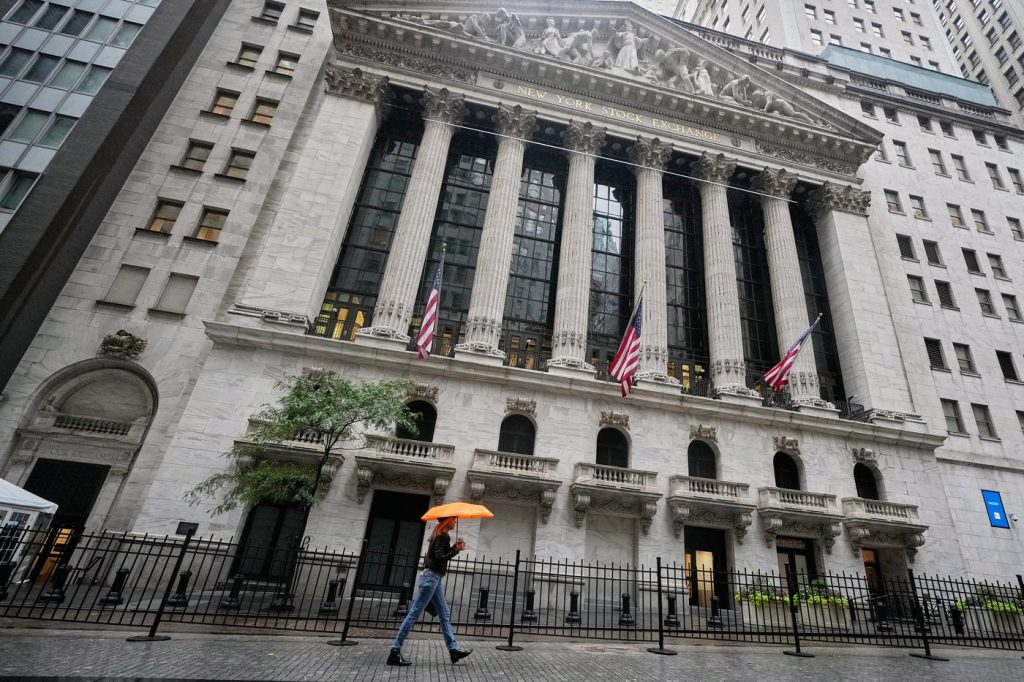BANGKOK (AP) – On Monday, Asian markets experienced significant gains following a successful week for Wall Street, which managed to navigate concerns regarding bank lending and the ongoing trade conflict with China. U.S. futures showed slight increases, while oil prices saw a decline.
Japan's benchmark Nikkei 225 index soared by 2.9%, reaching 48,970.40, marking a new record high. This surge came after Japan’s ruling Liberal Democrats secured a new coalition partner, thereby boosting support for their leader, Sanae Takaichi, who is poised to become Japan's first female prime minister. Takaichi is anticipated to implement pro-market measures, including maintaining low interest rates and increasing government spending.
In economic news from China, the country reported a 4.8% annual growth rate in its economy for the last quarter, buoyed by relatively robust exports as firms pivoted their shipping to markets outside of the U.S. Nonetheless, this figure represents the slowest growth rate in a year, as the world’s second-largest economy continues to grapple with a protracted downturn in its property market while attempting to stimulate consumer and business spending.
The Chinese Communist Party leadership convened a meeting in Beijing aimed at outlining policy objectives for the next five years and addressing personnel adjustments. The outcomes of this closed-door meeting are expected to be released gradually and formally ratified during the national legislature's annual session in early March.
In addition, the Hang Seng index in Hong Kong rose by 2.5% to 25,884.81, while the Shanghai Composite index increased by 0.7% to 3,866.77. South Korea's Kospi also experienced a significant boost, climbing 1.3% to a record 3,796.64 amid optimism surrounding a potential trade agreement with Washington and strong demand for semiconductors. Notably, shares of SK Hynix rose by 3.3%, while Kia Corp. and Hyundai Motor Co. also saw increases of 2.7% and 2.5%, respectively. Australia’s S&P/ASX 200 index inched up by 0.2% to 9,009.10.
On Friday, U.S. stock markets consolidated gains, with the S&P 500 rising by 0.5% to 6,664.01. The Dow Jones Industrial Average added 0.5% to reach 46,190.61, while the Nasdaq composite also increased by 0.5%, reaching 22,679.97. This marked the most successful week for the S&P 500 since early August.
The alleviation of some anxiety surrounding U.S.-China trade tensions contributed to the positive market sentiment. President Donald Trump announced that the very high tariffs he had warned might be imposed on Chinese imports are not sustainable. Trump also confirmed plans to meet with China's leader, Xi Jinping, at an upcoming conference in South Korea, a reversal from his previous assertion that there seemed to be "no reason" for such a meeting.
Bank stocks in the U.S. displayed stability after several financial institutions reported stronger-than-expected profits for the most recent quarter. For instance, Truist Financial, Fifth Third Bancorp, and Huntington Bancshares all exceeded analysts' expectations. Zions Bancorp saw a rebound of 5.8% following a 13.1% decline the previous day, despite it writing off $50 million in loans due to identified misrepresentations and contractual defaults. Similarly, Western Alliance Bancorp gained 3.1% after a legal dispute led to a prior drop of 10.8%.
The scrutiny surrounding the quality of loans issued by banks and lenders intensified following the Chapter 11 bankruptcy filing of First Brands Group, an aftermarket auto parts supplier. With rising concerns, market observers question whether these issues are isolated incidents or indicative of deeper systemic problems within the lending industry. Current economic conditions have led to heightened uncertainties, particularly in light of the period where many borrowers managed to sustain operations despite increasing interest rates.
JPMorgan CEO Jamie Dimon addressed these concerns during an earnings call with analysts, warning, "When you see one cockroach, there are probably more," suggesting that further issues may arise.
In commodity markets, U.S. benchmark crude oil prices fell by 19 cents to $56.96 per barrel, while Brent crude also dropped by 19 cents to settle at $61.10 per barrel. Currency exchange rates indicated a strengthening of the U.S. dollar to 150.87 Japanese yen from 150.59 yen, and the euro rose to $1.1667 from $1.1651.











